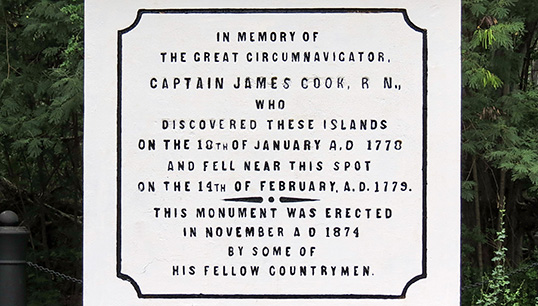Tackling sea blindness starts with lessons about seafaring heroes
26 April 2022

I am writing with regard to a letter in the last Nautilus Telegraph [March-April 2022] about the direction Nautilus is taking and the problem with 'sea blindness'. I too come from a proud seafaring city and I too am regularly met with looks of confusion when I mention that I am in the Merchant Navy.
I have come to thinking that it is the failure of the education system. We are an island nation and recent events in Ukraine should have taught us that it is essential for us to be self-sufficient for national security purposes. And we cannot allow another loss of seafaring jobs and a highly-skilled specialised workforce like we witnessed with the P&O Ferries debacle.
We come from a proud maritime nation and have a maritime history second to none and yet we do not utilise this advantage. We are barely taught anything about it at school. To my great shame as a seafarer, I realised I knew little about the people who went before us and provided the knowledge and expertise for this island nation to prosper for many centuries. Many of these great people, such as Captain Cook and Captain Bligh, I thought were fictional characters for a long time.
Over recent years I have bought some books about some of the great historical British seafarers from Sir Francis Drake to Sir Walter Raleigh and from Captain Cook to Captain Bligh and from Captain Cochrane to Captain Faulkner and Admiral Horatio Nelson. Including Scott of the Antarctic and Captain Shackleton, the list goes on and on.
It is not just seafarers either; there are other great people who have contributed to the maritime industry such as John Harrison, who invented the marine chronometer, solving the problem of calculating longitude while at sea. Or Sir Robert Watson-Watt, the inventor of radar.
These remarkable people and their incredible stories are almost forgotten to history by most of the country and we do not respect or appreciate their achievements and their sacrifices that we now benefit from.
I feel that we must somehow get these stories into the psyche and consciousness of as many people as possible. Perhaps Nautilus or the maritime colleges can come up with a competition at schools arguing the case as to who is Britain's greatest seafarer and which was the greatest maritime achievement, with the award of a grant or scholarship or books covering the lives of these giants of the sea to the winners of the competition.
This would hopefully capture the imagination of many people and give people the underpinning knowledge and appreciation of the maritime industry and as to how this country was built.
Membership no 197639
More letters
Insulin-treated diabetics: help shape your seafaring future
We’re looking for insulin-dependent seafarers working at sea with a valid ENG1 or ML5 certificate to take part in a new study that could mean fewer restrictions on this group in future.
It’s never right to attack civilian seafarers
I was saddened to see the footage of the attack by Ukraine on the two tankers in the Black Sea on 29 November. My heart goes out to the crew and officers who are, in my mind, not combatants in the Russia/Ukraine war.
There's no crisis in the yacht sector
I read Rob Coston's interview with yacht sector recruitment agent Max Lee on your website and found it sensationalist. In my opinion, it incorrectly described the situation regarding safety in yachting as a 'crisis'.
